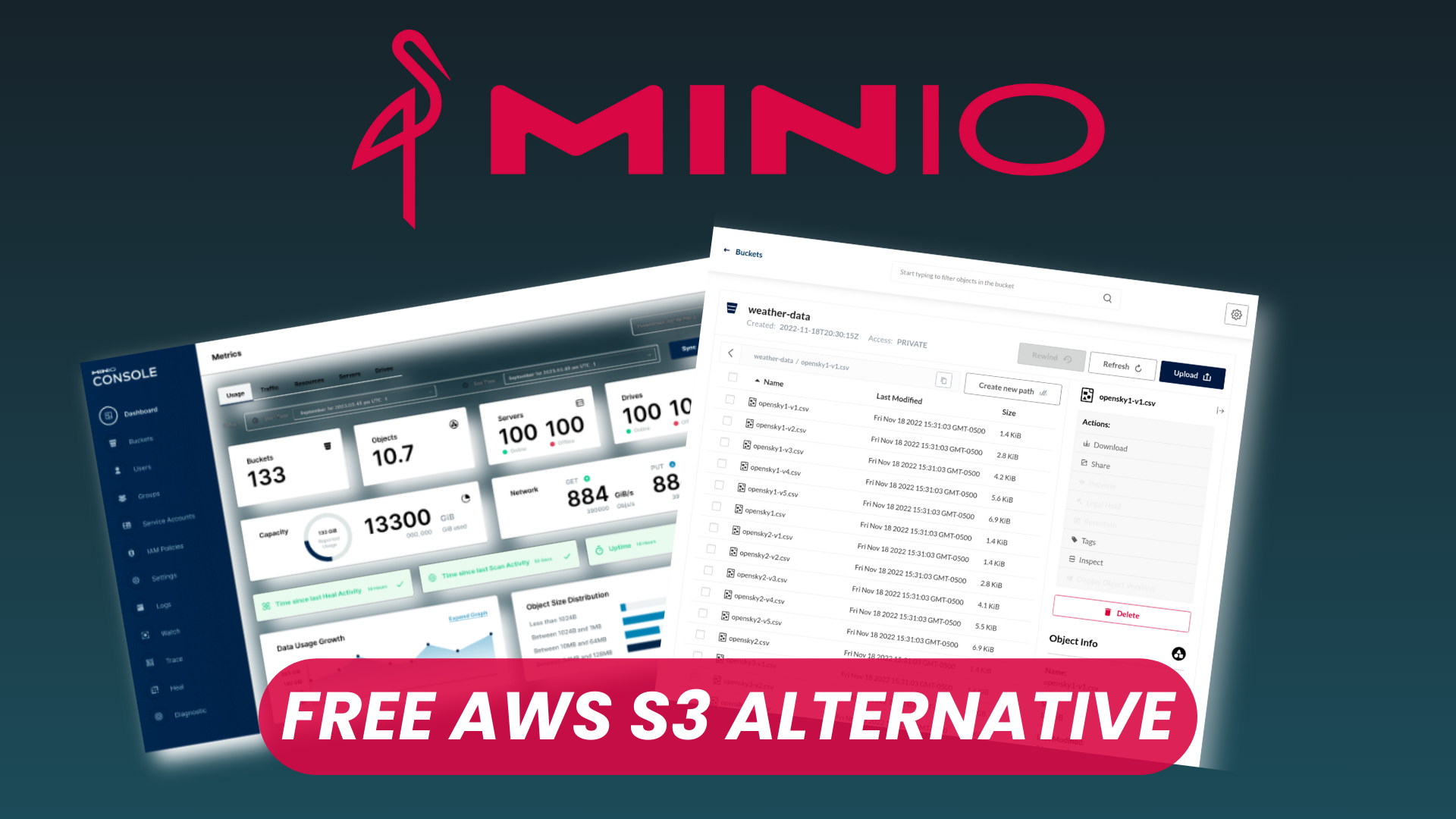MinIO: Open Source High Performance Object Storage

In today's digital landscape, the volume of data being generated and stored is growing exponentially. Whether it's for businesses managing vast amounts of customer data or individuals storing their personal files, the need for efficient and scalable storage solutions is essential.
Enter MinIO – an open-source, high-performance object storage system designed for handling large-scale data infrastructure needs. Founded in 2014, MinIO has quickly gained popularity among developers and enterprises alike for its speed, scalability, and compatibility with the Amazon S3 API.
Watch our MinIO Platform Overview
Object Storage
At its core, MinIO provides object storage capabilities, allowing users to store and retrieve unstructured data as objects through a simple API. Unlike traditional file storage systems, which organize data in a hierarchical directory structure, object storage treats data as blobs or objects with unique identifiers. This approach offers greater flexibility and scalability, making it ideal for storing large volumes of data across distributed environments.
S3 Compatible
One of MinIO's standout features is its compatibility with the Amazon Simple Storage Service (S3) API.
This means that applications designed to work with S3 can seamlessly integrate with MinIO without any code modifications. This compatibility extends beyond basic functionality to include advanced features such as multipart uploads, versioning, and lifecycle management, making MinIO a drop-in replacement for S3 in many scenarios.
Identities & Access Policies
Security is a top priority for any storage solution, and MinIO offers robust mechanisms for managing access to data. Through its Identity and Access Management (IAM) capabilities, administrators can define granular access policies to control who can access which objects and operations. This fine-grained control helps organizations enforce security best practices and comply with regulatory requirements.
Logging & Metrics
Understanding how storage resources are being utilized is essential for optimizing performance and resource allocation. MinIO provides comprehensive logging and metrics capabilities, allowing administrators to monitor operations in real-time and gain insights into usage patterns. By analyzing metrics such as request rates, storage usage, and error rates, organizations can identify bottlenecks, troubleshoot issues, and plan for future capacity needs.
Static Websites Hosting Solution
In addition to serving as a backend storage system, MinIO can also function as a platform for hosting static websites. By leveraging its support for bucket policies and website configuration, users can publish HTML, CSS, and JavaScript files directly from their MinIO buckets. This feature is particularly useful for content delivery and hosting static web applications, offering high performance and low latency access to web resources.
Scaling & Replicas
As data volumes grow, so do the demands on storage infrastructure. MinIO addresses this challenge with its horizontal scalability and support for data replication. By deploying multiple MinIO instances across a cluster of servers, organizations can distribute data and workload evenly, ensuring high availability and fault tolerance. Furthermore, MinIO's erasure coding and distributed erasure recovery mechanisms help protect against data loss and ensure data durability even in the event of hardware failures.
Conclusion
MinIO stands out as a powerful and versatile object storage solution for modern data-centric applications. Its open-source nature, compatibility with the S3 API, and robust features make it a compelling choice for organizations seeking scalable, high-performance storage infrastructure. Whether it's storing petabytes of data, hosting static websites, or ensuring data security and compliance, MinIO offers the flexibility and reliability needed to meet the demands of today's data-driven world.

